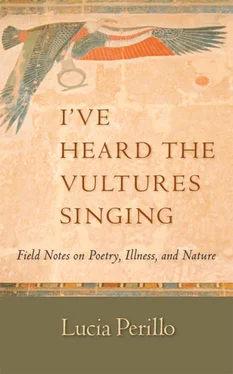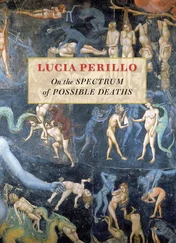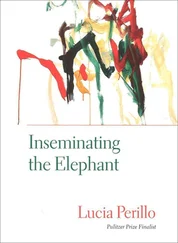But eventually I gain a little ground — that raspy intercom (1) was a towhee, and the melodic robot (2) is song sparrow, at least I’m pretty certain, though the noodle remains unknown. (I found out later this was a Pacific-slope flycatcher. I’m not a good-enough birder to tell the flycatchers apart by sight, though I’ve learned that distinguishing their songs is easy because they remain fairly uniform from bird to bird. This is due to the fact that their songs are genetically “hardwired” and not learned, as they are in other birds.)
While the unknown may compound the frustration, it’s also what keeps this game moving along as one moves through incremental aha! moments enabled by the technology of books and the inaccurate-but-mildly-useful tape. Frustration is a prerequisite, a prickly sensation that goes away when you learn a song or two and start feeling a little smug — you’ve reached a plateau of complacency where you can take a breather.
That’s when the game might be over, except pretty soon you hear something like a pennywhistle dropped into a frying pan and you’re back in the game again.
In the bird books, the songs easily parsed in English are written out that way. The chickadee says Hey sweetie , the olive-sided flycatcher says I see you or some other three-beat phrase (depending on your interpreter), but does my writing these phrases make it any easier for you-my-reader to hear the song? Probably not, unless you know the pitch and timbre of the words. Towhee is an onomatopoeic name, because the

that comes in raspy syllables is supposed to sound like towhee , although once it is cut loose from its moorings in the aural world and cast on a page passed from stranger to stranger, the word becomes merely a skeleton. Hearing the song is essential if the skeleton’s to garner flesh.
Unfortunately, most bird songs can’t find a good match in our crude human words. This results from the way the songs are produced, by a twin-chambered organ called a syrinx: two voice boxes working in tandem to produce music whose complicated polyphony requires a computer to catch all its details. Syrinx comes from the Greek word for panpipes, which seems appropriate — the bird’s breath is driven through multiple chambers — and even sweet, lyrical at least. Until you trace it one step further back and learn that the word for panpipes comes from the reeds that a virgin girl let herself be transformed into rather than be raped.
To warn of danger : this is one reason why birds sing. But birds sing most robustly in the spring, when the males are gripped by the drive to mate and females submit to the most appealing singer. What appeals to me in birds’ songs is the unabashedness of their desires, blasting so loudly I can almost forget my own body as I lie there listening while the sun climbs above the eastward mountains.
While driving around with Jim the other day, I heard a report on the radio about the ornithologist Don Kroodsma, who rides his bicycle across America each spring, zigging and zagging. His mission is simply to listen. I think he’s trained himself into the mental state called synesthesia, a kind of neural cross-wiring in which the stimulation of one sense results in a perception from a different sense. A person who is a synesthete might, for example, taste mint as a column made of glass , though the most common form of these atypical perceptions is colored hearing. When Kroodsma hears birds, he sees a picture.
More precisely, he sees is a finely detailed oscilloscopic graph — a sonogram. He can hear a warbler in one county, then ride to the next county and be able to discern how that same species of warbler sings in a different dialect. He can also imitate the calls accurately enough to give the dialect’s inflection. This man is a professor emeritus, the announcer says, which means he must qualify, by some measure, as old — and yet he sounds unwinded as he pedals.
I protest: “That’s who I wanted to be. That’s exactly what I wanted to do with my life.” This is the kind of pronouncement I’ll make after I watch, say, a figure-skating competition on TV. Suddenly I will want nothing more than to be a figure skater, always wanting to do the very thing I cannot do, even though I’ve hated skating ever since I broke my tooth on the flooded frozen tennis court at the village park when I was ten. At least three times a day I am overcome by such desires.
Jim says: “No it’s not. You wanted to be a poet. You’re doing exactly what you set out to do.”
But of course I pictured myself as the poet pedaling her bicycle across America, her legs shaped like stout branches of madrona.
This morning, outside in the checkerboard, I hear a song and flip through the pages of my notebook and am surprised to find a diagram that matches what I’m hearing:

The tape poses the hypothesis that this song comes from a ruby-crowned kinglet, a small elusive bird that I’m unlikely to see. Dimly I remember catching one in a mist net years ago when I worked for the Fish and Wildlife Service, holding it in my hand while I blew on its head to expose the hidden red patch. Its heart beat with a frightening force that seemed capable of tearing the bird’s thin skin and making it explode in my hand.
Each bit of new knowledge in these knowledge games is supposed to serve the same purpose as the wads of clay and straw that pioneers once used to chink the gaps between the logs of their cabins. I chink the holes of my losses, like the loss of the mist net. The wind blowing hard is memory, and I’m trying to plug myself until I’m tight against it. Memory, okay, but without so much nostalgic attachment to my bipedal past.
In addition to these games, two general courses of action would seem to be useful in the face of physical malfunction, one being the logistical solution, a solution like convening friends who would be strong enough — and willing enough — to carry me into the ravine (it’s harder to come up with logistical solutions that allow for solitude). But my friend scolds me for even entertaining the idea of asking people to carry me into the ravine: “It’s dangerous. You’d be asking them to get hurt. And what would you do down there anyway? You don’t take advantage of what you’ve got right here.” I hear her voice going quack quack quack .
I tell her I’d observe. “I’d sit down there for an hour.”
“But you’ve never observed up here for an hour!”
“How do you know what I do,” I sniff — a little nervous about her being right.
The other solution, the one my friend advocates, would be to quit wanting what I can’t have— cessation of desire . Like the holy man, I ought to be happy with the driveway, the miraculous driveway, where a hermit thrush stands on top of one of the tomato cages in the raised bed. I know it’s a hermit thrush because, and for the first time in my life, I can see the white whisker marks on both sides of its chin. This is the bird whose song Henry David Thoreau says “banishes all trivialness.”
This bird is also about as close as we come in the New World to the famous nightingale that stars in John Keats’s ode, and their songs share a similar downward-spiraling quality. Among the many well-known lines in “Ode to a Nightingale” is one that ends with the idea that “to think is to be full of sorrow” (echoing — rebutting? — Socrates’ assertion that the unexamined life is not worth living). A year before the ode, he wrote an improvisation that sounds like a run-up to the more famous poem. It included the line: O fret not after knowledge — I have none .
Читать дальше













![Various - Birds and Nature, Vol. 12 No. 5 [December 1902]](/books/745517/various-birds-and-nature-vol-12-no-5-december-thumb.webp)
![Various - Birds and Nature Vol. 11 No. 2 [February 1902]](/books/745533/various-birds-and-nature-vol-11-no-2-february-1-thumb.webp)